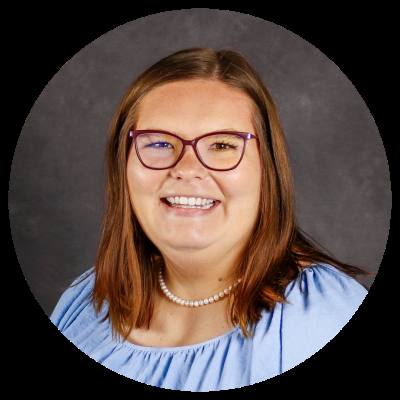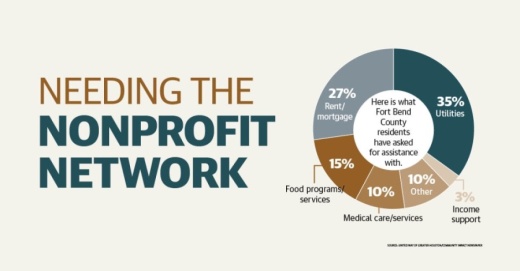Now, as the pandemic extends into the fall and winter, local nonprofits continue to help more members of the community than ever before while modifying and expanding their operations.
Since mid-March, Fort Bend Seniors Meals on Wheels has added 532 clients to its home delivery program and seen a 40% increase in the number of meals delivered each week.
“Like a lot of other nonprofits out there we’ve definitely seen an increase in demand,” said Leah Ghobrial, the deputy executive director of Fort Bend Seniors Meals on Wheels. “It was most apparent in the month or so after the stay-at-home orders went in place, ... and we’ve seen just a pretty steady pull since then.”
Meeting the community’s needs
In March, as the pandemic first hit, the Greater Houston Community Foundation surveyed 76 area nonprofits to gauge their needs and priorities as well as the needs and priorities of the community.
Of the respondents, 80% of nonprofits said they had received requests for help meeting basic needs, and 66% of nonprofits said they had received inquiries about emergency financial assistance. Sheena Abraham, the director of advancement with Second Mile Mission Center in Missouri City, said the faith-based nonprofit and food pantry has served between 20,000-22,000 individuals—or about 4,500 households—each month since July.
In July, Second Mile shifted its operations from a drive-thru pickup model—in which cars would line the streets near the center—to a curbside pickup model, in which families call or make an appointment online to receive food.
“Whenever a crisis or disaster happens, we immediately jump into relief mode, and we serve as many people as quickly as we can,” Abraham said. “But at some point, we have to transition into a new normal, and that’s what we did with the Park & Pickup.”
Ghobrial said to keep both the seniors it serves and all volunteers safe during the pandemic, Fort Bend Seniors Meals on Wheels closed its 12 senior centers and switched to delivering meals once a week instead of each weekday.
Fort Bend Seniors Meals on Wheels also began calling each client two times a week to keep in touch and ensure their well-being.
“One of the things that Meals on Wheels organizations across the country really pride ourselves on is that human connection,” Ghobrial said. “And so, we had to think, ‘How can we still check on our seniors, help reduce that social isolation and still keep our distance?’”
Through its 211 Texas/United Way Helpline, United Way of Greater Houston has answered calls from more than 132,000 Texas residents requesting assistance directly related to the COVID-19 pandemic.
“We get a really good indication from those calls about what the real-time needs in the community are,” said Mary Vazquez, the vice president of community outreach for United Way of Greater Houston. “So based on what we’re seeing, for COVID, we know that the top needs have been for assistance paying for rent and utilities—such as electricity, water [and] gas—and access to food pantries.”
Vazquez said prior to the coronavirus pandemic, 211 helpline data showed 47% of people in the Greater Houston area were struggling to afford basic necessities, a number that has increased to 67% during the past seven months.
The average family Second Mile serves grew from four to 4.76 members—an indicator, Abraham said, that more families are living together or supporting each other. Additionally, the median household income for a family Second Mile serves grew from $1,200 a month prior to the pandemic to about $1,300 a month, Abraham said.
“I think that’s because we’re seeing people who traditionally have not had to ask for help, who’ve been doing well and didn’t need the assistance, are now coming in, never having asked for assistance before,” Abraham said.
Donations and revenue
Despite the increased need for their services, nonprofits have also faced financial challenges during the pandemic; many have had to cancel in-person fundraising efforts and ask for donations amid widespread economic uncertainty.
Projections from the research organization Candid estimate 22,420 out of 316,000 nonprofits nationwide will have to shut down because of the coronavirus pandemic.
In the survey of Houston-area nonprofits, 52% said they were under-resourced, and almost one third were unable to say how long they would be able to persevere. Additionally, 75% indicated acquiring funding to offset lost revenue for general operational expenses is one of their greatest organizational needs. As Second Mile looks ahead to meeting the needs of the community for the months to come, Abraham said it is going to take more resources beyond making sure everyone has enough food.
“We know that it is a challenging year, but we are very hopeful that those who can give will dig a little deeper and recognize how many of our friends and neighbors need the help this year—some who have never needed the help before,” Vazquez said.
Hunter Marrow and Nola Z. Valente contributed to this report.





